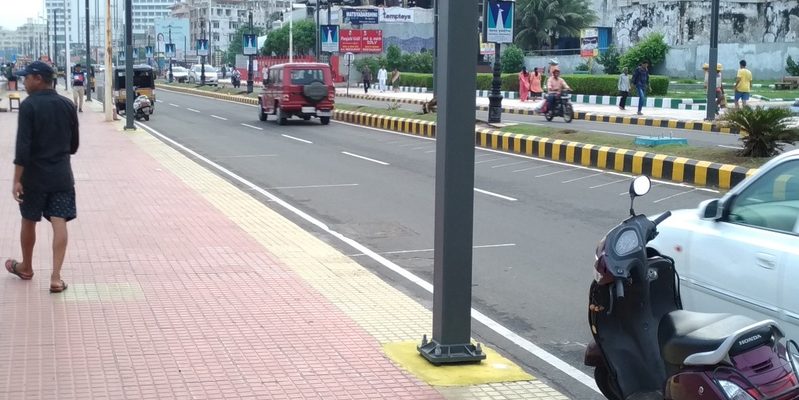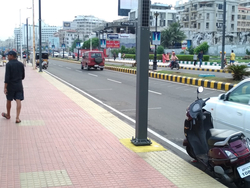Working Group Meeting in Vishakapatnam, Ludhiana under Cities Shift Project

SHIFT Working Group meeting was organised in Visakhapatnam and Ludhiana under the, Hewlett Foundation and EcoMobility Alliance funded, Cities SHIFT: Capacity building and Networking for Sustainable Urban Mobility project.
The SHIFT Working Group consists of stakeholders who are related to the mobility system of the city such as the urban planning department, transport department, public transport operator, and road safety unit.
The meeting focused on assisting city officials to conduct SHIFT assessment which is a process that allows cities to measure performance and identify specific strengths as well as weaknesses in the fields of mobility by assessing a set of indicators. It will also propose ways to improve eco-mobility. This process will be conducted together with ICLEI South Asia for support.
In Visakhapatnam, the meeting was chaired by Mr. Hari Narayan, IAS, Commissioner, Visakhapatnam Municipal Corporation along with the participation of various stakeholders related to urban mobility, which includes Vishakapatnam Urban Development Authority, Officer of Regional Transport Officer and traffic Police.

Mr. Narayan agreed to the fact highlighted in the meeting that “one of the common challenges, while the city administrations plan and implement policy and plan to improve mobility services and infrastructure, is the lack of direct feedback on the effectiveness of the system.”
He stressed on assessment of its BRT system since operationalising BRTS will be the major step in the shift towards EcoMobility.
In Ludhiana, the meeting was chaired by Dr. Sheena Aggarwal, IAS, Additional Deputy Commissioner-Ludhiana along with the stakeholders such as the Traffic police and relevant municipal departments.

Dr. Aggarwal acknowledged the need to measure is critical to avoid ineffective solutions. Hence, to make Eco-mobile modes of transport attractive, such services not only need to be planned and operated well, but they also need to be assessed on a continual basis”. The working group stressed on need to control pollution and congestion created by the high number of unregulated auto rickshaws.
Additionally, city expressed keen interest to assess the performance measurement of an ongoing public transport system.
The overarching goal of the project is to support cities to identify challenges and opportunities of its urban mobility system so that cities could make informed decisions during the shift towards more eco-mobile modes of travel i.e. walking, cycling, public transport and shared mobility. To achieve this goal, the project cities from India will work with selected project cities from China, and Uganda (two each) through three intervention points:
• Performance measurement using EcoMobility SHIFT tool to identify challenges and opportunities to improve the city’s urban mobility system;
• Capacity building through knowledge exchange with other cities and partners at international workshops, webinars, etc.; and
• Global dissemination of cities’ successes and stories to inspire other cities.
As a next step, cities will assess the performance of its mobility system using the tool and discuss prioritise the strategies during the next visit of the project team in January/February 2019.
